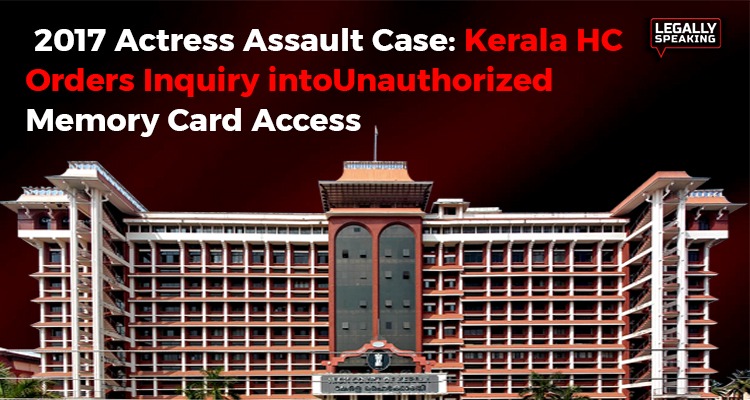
The Kerala High Court has issued a directive instructing the Ernakulam District and Sessions Judge to initiate a fact-finding inquiry into the allegations raised by the survivor of the 2017 actress assault case regarding unauthorized access to the memory card containing footage of the assault.
Single-judge Justice K Babu mandated the concerned sessions judge to investigate the allegations within a one-month timeframe, with the option of police assistance if deemed necessary.
Importantly, the court clarified that the inquiry should not interfere with the ongoing trial of the case.
Justice Babu categorically labelled the unauthorized video access as an act of violence against women, a breach of privacy, and a violation of constitutional rights.
In the court’s judgment, it was stated, “The necessary conclusion would be that we failed to protect the victim’s interest, which resulted in the violation of her fundamental constitutional right. The victim alleges that the contents of the video footage were copied and transmitted. The emotional and psychological harm being suffered by the victim is beyond imagination.”
Malayalam cine actor Dileep is among the accused in the rape case, alleged to have orchestrated the attack on the survivor due to personal disputes.
While the trial is ongoing in the Ernakulam District and Sessions Court, the survivor actress approached the High Court, asserting that the memory card, holding visuals of the attack and seized as evidence, was accessed, copied, and transmitted without authorization.
In the survivor’s plea, it was argued that despite the Forensic Science Lab confirming the illegal leak, the presiding officer of the trial court has taken no action or allowed court staff to be interviewed by the investigating officer.
The petitioner contended that her fundamental right to a fair trial and her right to privacy under Article 21 of the Constitution were violated.
Seeking the High Court’s intervention for a fair and impartial investigation and trial, the survivor emphasized the interference with the memory card’s contents.
Before the High Court, the Director General of Prosecution and Senior Advocate TA Shaji acknowledged the undisputed unauthorized access to the memory card, asserting that legal restrictions on court cognizance do not impede police investigation into a cognizable offense.
Senior Advocate B Raman Pillai, representing Dileep, argued for an investigation into the allegations of illegal tampering with the memory card’s contents, questioning the petitioner’s right to seek relief based on a forensic lab report whose veracity is subject to legal establishment.
Senior Advocate B Raman Pillai also contended that access to the memory card, while in the court’s custody, cannot be objectionable.
The High Court scrutinized several State Forensic Science Laboratory reports on the memory card, noting changes in hash values and unauthorized access on specific dates.
The judgment concluded that there was unauthorized access on January 9, 2018, and December 13, 2018, reserving discussion on the authorization of access on July 19, 2021, for subsequent consideration.
The Court stressed the importance of adhering to the Supreme Court’s directives limiting video footage inspection to prevent copying or altering electronic records and safeguarding the victim’s privacy.
It opined that an inquiry into unauthorized access to the memory card is essential to address the victim’s grievances and maintain the integrity of the judicial process in cases involving violations of public justice.
Consequently, the Court ordered the inquiry and issued comprehensive guidelines on handling sexually explicit materials for law enforcement agencies, courts, and examining authorities.




